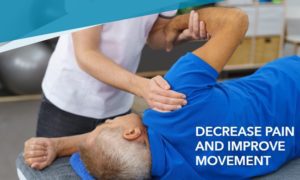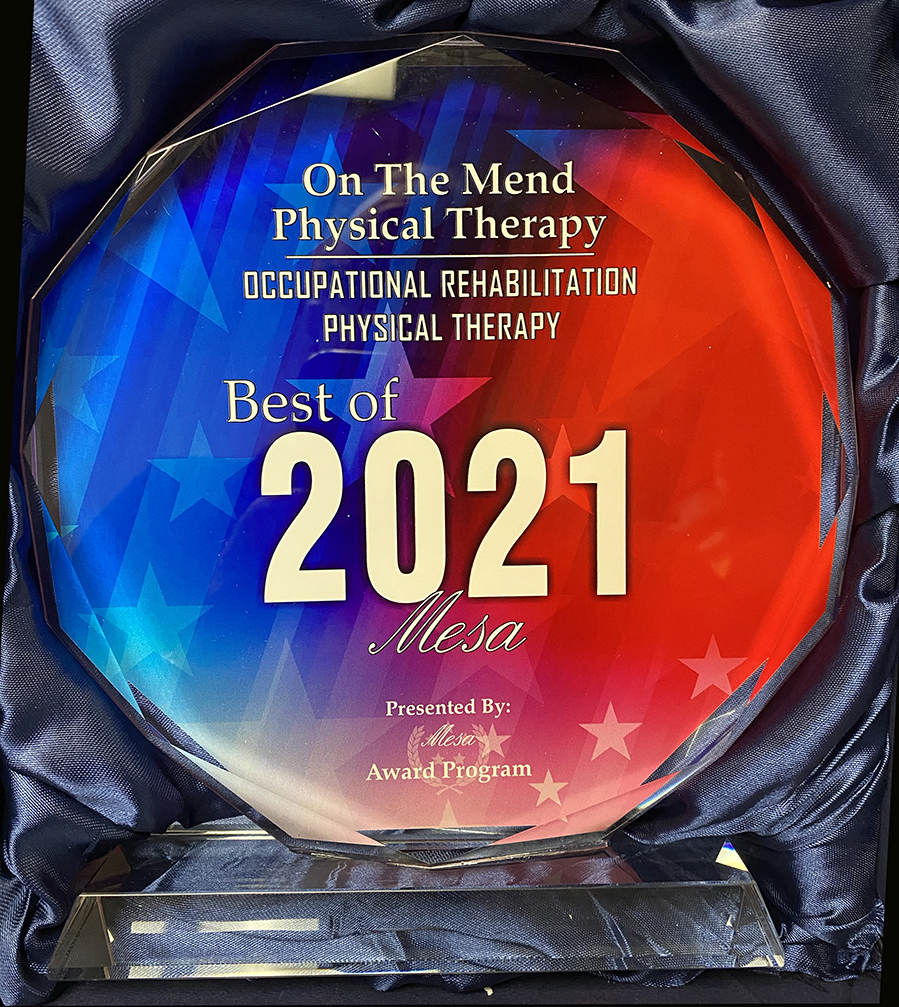Having shoulder pain but not sure what it is?
When you come to On the Mend, your physical therapist will gently test the movement of your neck and arms, your tendon reflexes and strength, and conduct special tests on your neck and upper extremity to determine which painful condition of the shoulder you have. Here’s how we help these conditions:
SHOULDER BURSITIS — Shoulder bursitis is a painful condition that affects people of all ages. The condition tends to develop more in middle-aged, elderly, and individuals who have muscle weakness. Shoulder bursitis can have many causes, but the most common is a repetitive activity, such as overhead reaching, throwing, or arm-twisting, which creates friction in the upper shoulder area. Physical therapy can be a very effective treatment for shoulder bursitis to reduce pain, swelling, stiffness, and associated weakness in the shoulder, arm, neck, and upper back.
Shoulder impingement — Shoulder impingement syndrome occurs as the result of chronic and repetitive compression or “impingement” of the rotator-cuff tendons in the shoulder, causing pain and movement problems. It can also be caused by an injury to the shoulder. People who raise their arms repeatedly overhead are most at risk for developing a shoulder impingement. Poor posture can also contribute to its development. If left untreated, a shoulder impingement can lead to more serious conditions, such as a rotator cuff tear. Physical therapists can help decrease pain, and improve shoulder motion and strength in people with shoulder impingements.
ROTATOR CUFF TEAR — The “rotator cuff” is the group of 4 muscles and their tendons responsible for keeping the shoulder joint stable. Injuries to the rotator cuff are common—either from accident or trauma, or with repeated overuse of the shoulder. Physical therapists help people with rotator cuff tears address pain and stiffness, restore movement to the shoulder and arm, and improve their activities of daily living.
ROTATOR CUFF TENDINITIS — Rotator cuff tendinitis occurs when a shoulder tendon is irritated and becomes sore. With continued irritation, the tendon can begin to break down, causing tendinosis—a chronic, long-term condition. A physical therapist can help you identify and correct risk factors for rotator cuff tendinitis, and help you decrease your pain while improving your shoulder motion and strength.
PINCHED NERVE — A pinched nerve in the neck will produce radiating pain from the neck to the shoulder, shoulder blade, arm, or hand. Weakness and lack of coordination in the arm and hand can also occur. A physical therapist can help alleviate the acute neck and arm symptoms that result from the condition, as well as improve general strength and function. Most cases of pinced nerve are resolved with physical therapy and do not require surgery.
Shoulder osteoarthritis (OA) — is a condition that occurs when the cartilage that lines the sides of the shoulder joint is worn or torn away. It may be caused by injury or dislocation of the shoulder, or “wear and tear” of the shoulder over time. Physical therapists treat shoulder OA with hands-on therapy and individualized exercise programs.
If you’re having shoulder pain, don’t wait. Call one of our clinics near you to schedule a free screen and see how we can get you back to living pain free and enjoying your favorite activities. You don’t have to live with pain!




